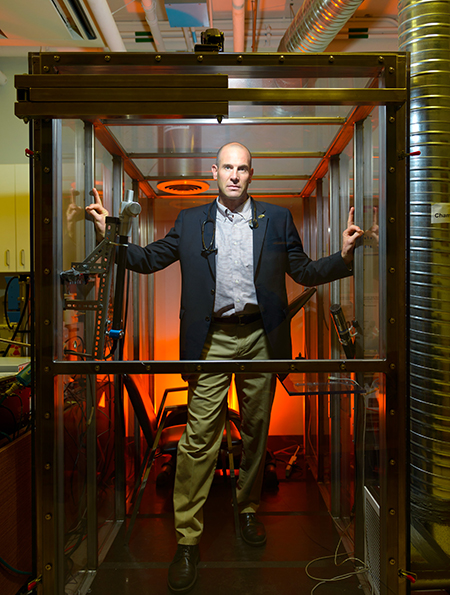This is a short must-read article..
From the University of British Columbia’s Investigations + breakthroughs
Diesel exhaust causes changes “deep under the hood”
Just two hours of exposure to diesel exhaust fumes can switch some genes on, while switching others off.
That discovery, by Chris Carlsten, an Associate Professor in the Division of Respiratory Medicine, resulted from an experiment involving an unusual contraption: a booth — about the size of a standard bathroom — in which volunteers spend time breathing diluted and aged diesel exhaust.
Dr. Carlsten and his collaborators examined how exhaust affects the chemical “coating” that attaches to many parts of a person’s DNA. That carbon-hydrogen coating, called methylation, can silence or dampen a gene, preventing it from producing a protein – sometimes to a person’s benefit, sometimes not. Methylation is one of several mechanisms for controlling gene expression, known as epigenetics.
The study, published in Particle and Fibre Toxicology, found that breathing diesel-tainted air (similar to conditions along a Beijing highway) caused methylation changes at about 2,800 different points on people’s DNA, affecting about 400 genes. In some places on the genome, it led to more methylation; in more places, it decreased methylation.
Finding out how these changes in gene expression translate to health is the next step for researchers. But this study showed how vulnerable our genetic machinery can be to air pollution, and that changes are taking place even if there are no obvious symptoms.
“Usually when we look at the effects of air pollution, we measure things that are clinically obvious – air flow, blood pressure, heart rhythm,” Dr. Carlsten says. “But asthma, higher blood pressure or arrhythmia might just be the gradual accumulation of epigenetic changes. So we’ve revealed a window into how these long-term problems arise. We’re looking at changes ‘deep under the hood.’ ”
The fact that DNA methylation was affected after only two hours of exposure has positive implications, says Dr. Carlsten, the Canada Research Chair and AstraZeneca Chair in Occupational and Environmental Lung Disease, and an investigator with the Vancouver Coastal Health Research Institute.
“Any time you can show something happens that quickly,” he says, “it means you can probably reverse it” – either through a therapy, a change in environment, or even diet.

